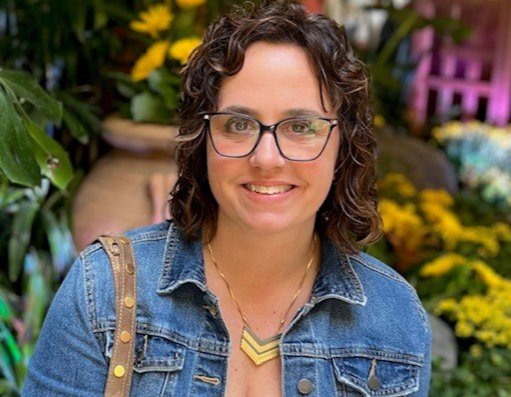AVOT SPEAKERS
More speakers will be added once confirmed.
Dr. Terah Webb
Dr. Kristin Fischer
Dr. Ethan Hefner
Dr. Roxanne Rodriguez
Dr Ben Bergstrom
Dr. Levi Smith
Dr. Alex Sigmund
Dr. Rachel Irene Wright
Helena Bell VTS
Jamie Stuffle VTS
Terah Webb
DVM, DACVO
Anterior Uveal Diseases and Surgery
Description coming soon.
Terah Webb, DVM, Diplomate, ACVO, is a Board-certified Veterinary Ophthalmologist at MedVet Columbus as well as the Pharmacy Committee Chair for all MedVet locations. She has been a part of the ophthalmology team since 2003. Dr. Webb attended The College of Wooster where she earned a Bachelor of Arts degree in 1998 and The Ohio State University where she earned a Doctor of Veterinary Medicine degree in 2002. Following her graduation from veterinary school, Dr. Webb completed a yearlong internship in small animal medicine and surgery at Carolina Veterinary Specialists and a three-year Residency in ophthalmology at MedVet Columbus and The Ohio State University College of Veterinary Medicine.
Dr. Webb’s work has been widely published in peer-reviewed journals, including the Journal of the American Veterinary Medical Association, Veterinary Ophthalmology, and Molecular Vision. She has also served as a principal investigator in several clinical trials, including a novel therapy to prevent diabetic cataracts. An active advocate of continuing education for veterinary professionals, she has lectured on various small animal ophthalmology topics both regionally and nationally.
In addition to glaucoma therapy and surgery, Dr. Webb’s special interests include ocular toxicology and cataract surgery with intraocular lens placement. Her goal with each consultation is to educate the client about their pet’s disease, why it has occurred, and all treatment options. She is dedicated to restoring or preserving vision and providing lifelong comfort for each patient she treats.
She is the recipient of numerous teaching/leadership awards, including three Golden Aesculapius Teaching Awards, the Gold Chalk Award, the Dadd Award, Western Veterinary Conference’s “Educator of the Year” (2018), and the 2023 Jordan Hoyt Memorial Tribute to Women faculty award. Since becoming an ACVO diplomate in 2002, Dr. Giuliano has demonstrated sustained devotion to her profession through volunteer work. This includes serving on more than 12 ACVO standing, Ad-Hoc, and associated committees [Residency Committee (2002-2006), Resident Forum Committee Co-Chair (2003 & 2006), ACVO Nominating Committee (2008 & 2017), Job Task Analysis Task Force (2008), Resident Presentation Judge at Annual Conference (2008 & 2009), Governance Committee (2009 – 2011), Maintenance of Certification Committee (2007-2012), Vision for Animal Foundation Grants Committee (Member 2007- 2009; co-Chair 2010 – 2012), William Magrane Basic Science Course in Ophthalmology Steering Committee (2011-2017), and the ABVO Examination Committee (2019- 2022)]. In 2011, she was elected to the American College of Veterinary Ophthalmologists (ACVO) Board of Regents (2011-2016) and served as the ACVO President from 2015-2016.
Michelle Willis
DVM, DACVO
Implementing the Cat Friendly-Fear Free Philosophy in Ophthalmology Practice
In recent years, our industry has been very proactive in recognizing and reducing fear and anxiety in our veterinary patients. Although cats have a reputation for being one of the more difficult species to work with, in most cases their behavior is a reaction to their fear and anxiety. Negative reactive behavior can result in owners avoiding or delaying seeking veterinary care for their cat, and can reduce owner compliance with medical recommendations and follow-up visits. The Cat Friendly-Fear Free philosophy seeks to change this so we can see and help more cats! We will discuss: tools for owners to get their cat to your clinic with less anxiety, and achieve less-stressful at-home medicating; ways to promote a fear-free clinic environment; gentle feline handling practices for exams, phlebotomy, and other in-clinic procedures. The FAS (Fear, Anxiety and Stress) score will be reviewed to improve your assessment of feline body language and how to best approach individual cats. Anti-anxiety medications and supplements will be reviewed. Strategies for reducing stress surrounding surgery with both pre- and post-operative interventions will be presented. Information on how to become a certified Cat Friendly Technician/Practice will also be presented.
Dr. Michelle Willis is a native of Nova Scotia, a graduate of the Atlantic Veterinary College, in Prince Edward Island, Canada, and completed a Small Animal internship at Michigan State University, and a Comparative Ophthalmology Residency at the University of Georgia. After enjoying years of working with all veterinary species in ophthalmology practice, Dr. Willis followed her passion for cats and has been practicing feline ophthalmology exclusively for the past 11 years. Dr. Willis is enthusiastic about the Cat Friendly-Fear Free practice philosophy and is certified as a Cat Friendly Veterinarian by the American Association of Feline Practitioners. She lives in Arlington, Massachusetts with her veterinary pathologist husband, an energetic Border Collie, and two beloved one-eyed cats.
Rachel Irene Wright
DVM
Caring for a Blind Pet
This presentation establishes the necessary pillars to set a blind pet up for success:routine, safety, and behavior. This presentation will also highlight species specific considerations for dogs, cats, and horses. We will then review available resources about blind pets for owners and veterinary practices.
Rachel Irene Wright (she/her) grew up in Fishers, Indiana. She obtained her Bachelor of Science in biology at Hope College, then her Doctorate of Veterinary Medicine at Purdue University’s College of Veterinary Medicine. After veterinary school she completed a small animal rotating internship at Auburn University, a comparative ocular pathology fellowship at the University of Wisconsin Madison, then a specialty ophthalmology internship at Animal Eye Guys. She is currently a senior resident in comparative ophthalmology at the University of Georgia. Outside of work, Rachel enjoys spending time with her two cats, Fava & Adzuki, and her two dogs, Pinto & Beans. She is a life-long equestrian, book lover, and baker.
Levi Smith
DVM
Techniques for Exotic Pet Ophthalmology
According to the most recent AVMA survey, approximately 8% of US households owned exotic pets in 2022. The demand for quality specialty care, not only from exotic pet specialists, but all veterinary specialists, is rising. Pet exotic companion mammals, birds, reptiles, and amphibians all have differing husbandry requirements and anatomical differences that can affect not only their systemic health, but also their ocular health. The first one-hour lecture in this two-part discussion will cover history-taking specifics and tools, safe handling and restraint techniques, unique examination differences, and additional equipment that may be needed to fully incorporate exotic pets into the ophthalmology practice.
Common Ophthalmic Diseases of Exotic Pets
Exotic pet ophthalmology highlights the vast variation of anatomy and physiology of vision and sight within the animal kingdom. The second one-hour lecture will first discuss the ocular anatomical differences of the most common exotic pet species (exotic companion mammals, birds, reptiles, and amphibians). Commonly seen ophthalmic diseases in exotic pets will be discussed, including diagnostic methods, treatments, and prognoses.
Dr. Levi Smith, DVM is a current fourth-year resident in comparative ophthalmology at Purdue University Veterinary Hospital in West Lafayette, Indiana. Prior to vet school, he completed his Bachelor’s in zoology and Spanish linguistics. He then went on to graduate from Purdue College of Veterinary Medicine in 2020, and then completed a rotating small animal internship at the University of Georgia Veterinary Hospital. After that, he returned to Purdue as an ophthalmology resident. Throughout his time in veterinary medicine, he has had a strong passion for exotic animal medicine, especially reptiles and amphibians. He is excited to continue pursuing his passion for these unique creatures through his ophthalmology experiences and services.




